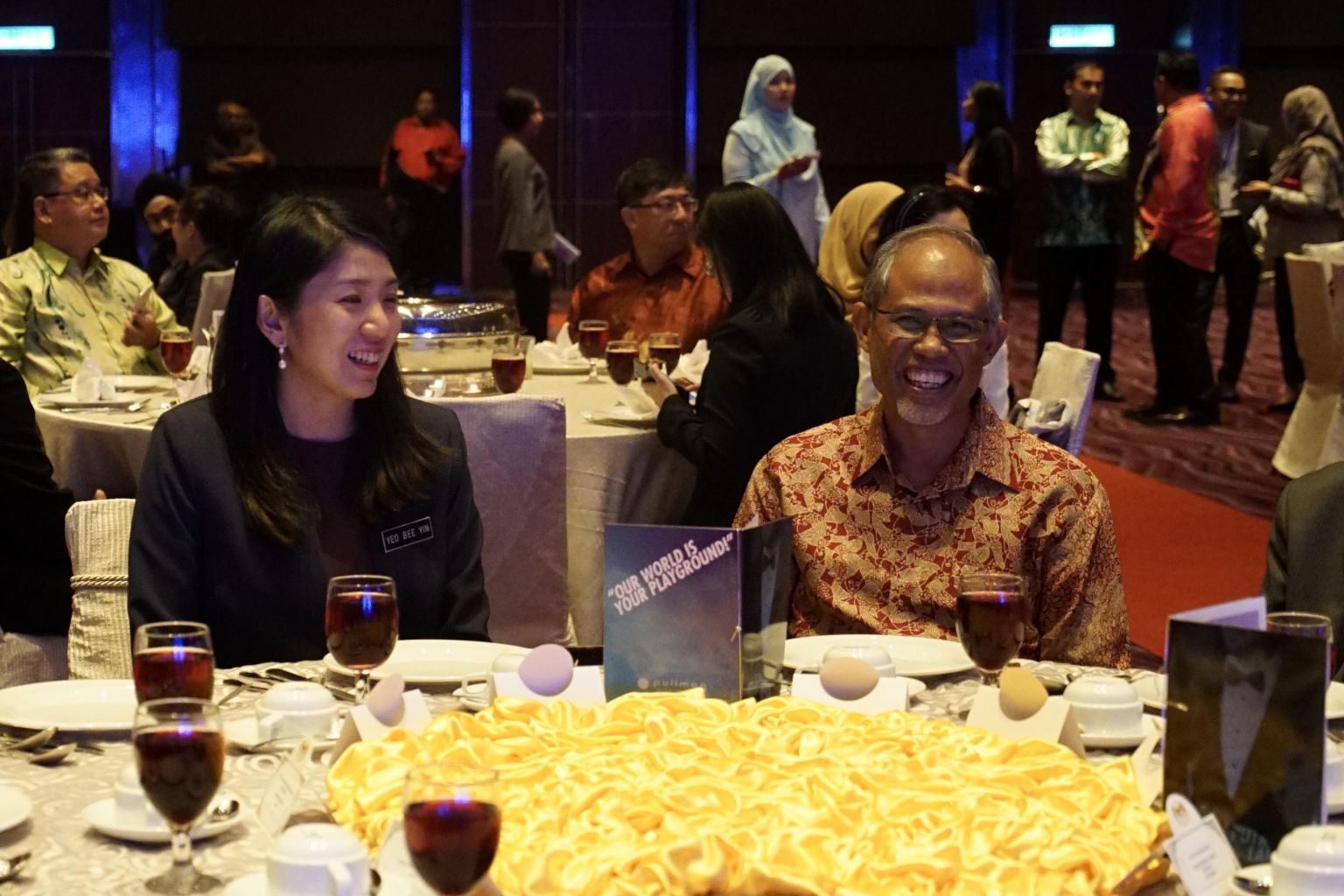Singapore, Malaysia agencies talk environment and waste at annual meeting
Sign up now: Get insights on the biggest stories in Malaysia

Mr Masagos Zulkifli, Minister for the Environment and Water Resources and Ms Yeo Bee Yin, Malaysia's Energy, Science, Technology, Environment and Climate Change Minister at the 31st Malaysia-Singapore Annual Exchange of Visits.
PHOTO: MINISTRY OF ENVIRONMENT AND WATER RESOURCES
Follow topic:
PUTRAJAYA - Singapore and Malaysia's government agencies engaged in discussions over emissions, water quality in the Johor Strait, emergency responses for chemical spills and environmental training programmes on Thursday (Sept 27), led by ministers from the two neighbouring countries.
The 31st Malaysia-Singapore Annual Exchange of Visits (MSAEV) between Singapore's Ministry of Environment and Water Resources (MEWR) and Malaysia's Ministry of Energy, Science, Technology, Environment and Climate Change (MESTECC) however did not discuss the regional haze issue.
Singapore Minister Masagos Zulkifli and Ms Yeo Bee Yin, Malaysia's Energy, Science, Technology, Environment and Climate Change Minister, said they did not discuss the Asean transboundary haze agreement, despite a regional meeting set for early October in Myanmar.
"We don't work bilaterally to address a multilateral issue," Mr Masagos said of the agreement which was a response to open burning in Indonesia's palm oil plantations which shrouded the region in thick smoke in recent years.
"We are appreciative there has not been an episode of intense bad haze for the last few years," he added, congratulating Indonesia for "putting feet on the ground" to stem the problem.
Ms Yeo said that she is "expecting one-step improvement" at a time during each round of haze meetings.
"I have faith that Asean as a region will be able to solve this problem not only for haze, but to really build our brand in sustainable palm oil," she said.
Both countries agreed to hold regular joint field exercises to test the effectiveness of their emergency response plan to deal with chemical spills at the Malaysia-Singapore second crossing and the Johor Strait. They also discussed land reclamation works at the Strait of Johor and their potential adverse impact on the environment.
The meetings also saw deep discussion in moving towards "zero-waste", with Malaysia studying whether it can apply some of Singapore's ideas.
Ms Yeo said the challenge was to implement a "circular economy" where products can be repeatedly reused so "the net production of waste that we eventually have can be reduced as we cope with an increasing population".
Mr Masagos said that Singapore has pursued a strategy of "co-creating solutions" with the public, such as using technology to make it simple for them to separate waste.
In an informal meeting with Malaysia's Water, Land and Natural Resources Minister Xavier Jayakumar, Mr Masagos also discussed the joint hydrometric modelling study of Johor River, which was first announced by Prime Minister Lee Hsien Loong and then Malaysian PM Najib Razak at the eighth Singapore-Malaysia Leaders' Retreat in Singapore in January.
The study is intended to help increase the water yield and conserve supply at the Linggiu Reservoir, which discharges water into the Johor River. Singapore buys its water from Johor under a 1962 agreement.
"The environment has changed, rainfall has changed, water catchment areas that feed into the Johor River and Linggiu Reservoir have also changed. So there is a need for us to study," Mr Masagos told reporters on the sidelines of the MSAEV.
During his two-day visit which ends on Thursday, Mr Masagos also met Malaysia's Federal Territories Minister Khalid Samad, Deputy Finance Minister Amiruddin Hamzah and Deputy Religious Affairs Minister Fuziah Salleh.

